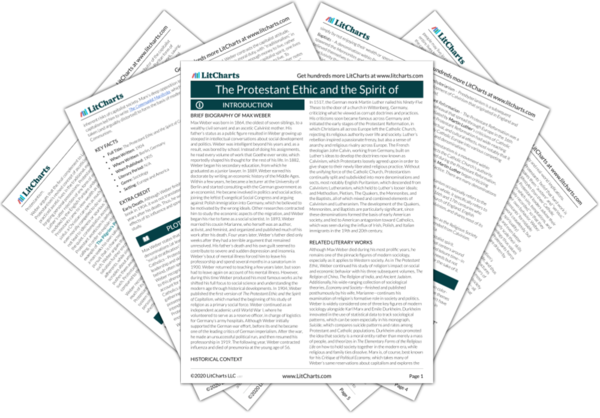Weber uses John Bunyan’s religious allegory, The Pilgrim’s Progress, to represent the selfish bent of Puritan theology. In the 1678 Puritan allegory, the main character, Christian, lives in the City of Destruction with his wife and children, symbolizing his own state of damnation. However, Christian decides he must go to the Celestial City, representing salvation. Heedless of his responsibility to his family, Christian ignores the cries of his wife and children and runs toward the Celestial City, shouting about “eternal life,” leaving his family to face their own ruin. Weber argues that Christian’s prioritization of his own salvation over his family’s welfare, which Bunyan depicts as noble and righteous, accurately reflects the selfish individualism of Puritan theology as a whole. As the Puritans see it, each man’s sole concern should be his personal salvation, rather than the welfare of his family or community. Since one proves his personal salvation through laboring in his calling, Weber argues that this selfish bent ultimately fuels the capitalist spirit. Just as Christian selfishly focuses on his own spiritual wellbeing, Puritan people feel justified in focusing on their own economic success, which they believe pleases God, even when their neighbors may be destitute. As symbolized by Christian’s selfishness—which the allegory depicts as righteousness—Weber argues that Puritan theology justifies one’s pursuit of personal gain, even at the expense of the social good.








